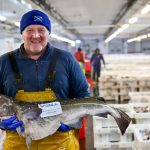The Australian Fisheries Management Authority has introduced a quota system on catching shark in 2001 and since then many of the small operators from Port Albert in south Gippsland have been muscled out of the market, forced to sell their slice of the shark quota to larger commercial fishing businesses.
Michael Hobson, 36, was a fifth-generation shark fisherman, said that they would spend a week at sea, they would get up at 9am, cook some feed for the boys, put the nets out, see if you get anything, if not, move on to another spot. Have a nap — then you work through the night until about 4am before getting a few solid hours of sleep.
After five years of negotiations between the fishing industry and AFMA, a federal government body, the Australian Southern Shark Fishery moved to being a fishery regulated by individual transferable quotas, or ITQs, which stipulate the tonnage of shark fishermen can catch. When the system came into place, the total quota for gummy shark was more than 2100 tonnes.
It is informed that within two years it was reduced to 1800 tonnes. The aim was to make the fishery more ecologically sustainable, but according to Hobson all it has done is pushed smaller operators out of the market. In this system each commercial fisherman was given an annual quota based on what they had caught in the past. Mr Hobson received just under 30 tonnes.
Tanya King, an anthropologist with Deakin University, said that the ITQ system is based on an economic understanding of fisheries, but economic efficiency doesn’t always equal biological sustainability.








